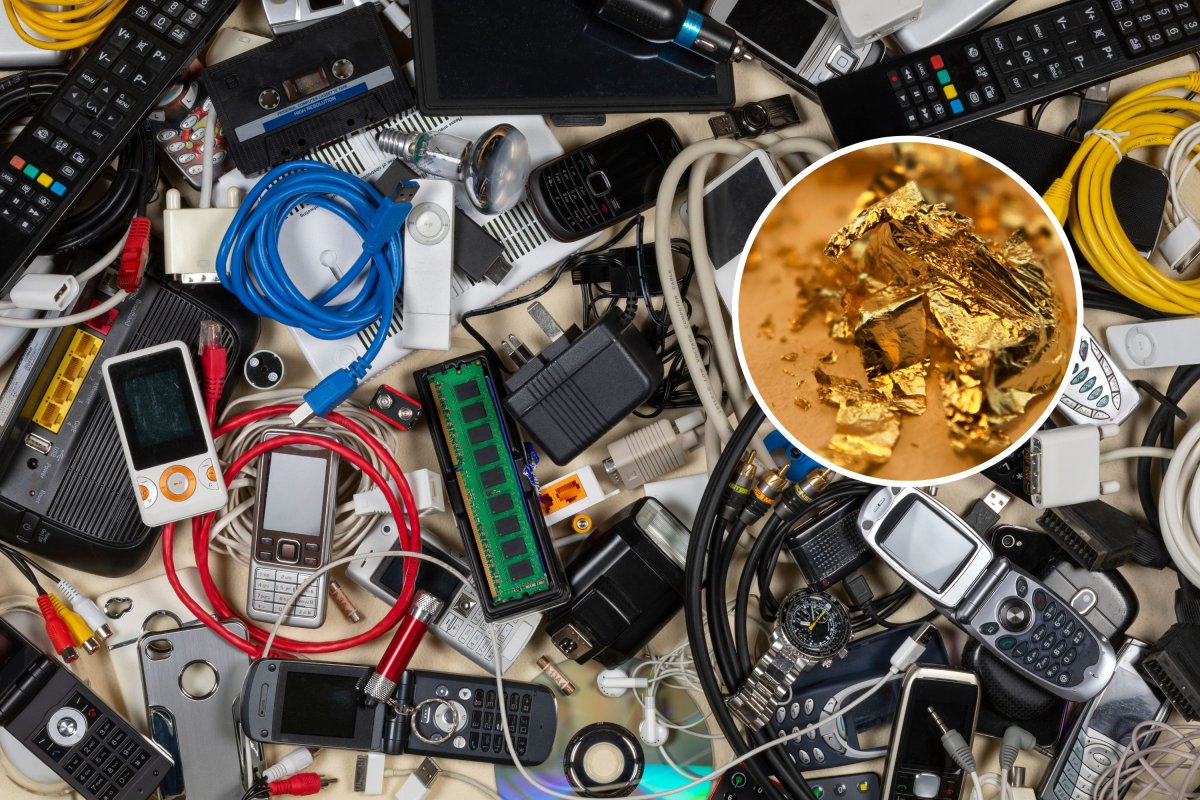Scientists have figured out a way to recycle important metals trapped inside electrical waste.
Using textiles, researchers from the Korea Institute of Science and Technology (KIST) have improved the efficiency of extracting gold from electronic waste, according to a new study in the Chemical Engineering Journal.
This method achieved a gold recovery efficiency of almost 100 percent.
Electronic waste, often referred to as e-waste, consists of discarded electronic devices and components. This can include old electrical appliances, mobiles, laptops, circuit boards, and batteries, as well as toys, household tools, razors, cables, hairdryers, routers, speakers and fire alarms, among many others.
Around 50 million tons of e-waste are thrown out every year, and less than 20 percent of that is recycled. This e-waste often contains both precious metals like gold, silver, and platinum and common metals like copper, aluminum, and iron, but these metals are often quite difficult to remove efficiently from the waste.
Many methods of recovering metals from e-waste involve the use of adsorbents, which are usually granular materials that use their large surface area to attach to the metal particles. However, these are often hard to control underwater, leading to low recovery rates, and also contributing to environmental pollution.
According to the new research, high-purity gold can be removed selectively from e-waste using textile adsorbents instead. These fiber-like materials, made of a chemical called polyacrylonitrile, can be readily manipulated underwater and shaped into different forms via weaving, making them highly useful for industrial uses.
However, their thinness and fragile nature mean they often break when used in gold recovery processes. The researchers attached alkaline molecules to the fibers to improve their stability and their gold recovery performance.

This fiber method can recover up to 2.5 times more gold ions than granular materials, thanks to having a much higher surface area.
"By enabling efficient and eco-friendly metal resource recovery, the fiber-type adsorbent developed by KIST can reduce Korea's dependence on resource imports and prepare for the risk of rising raw material prices," study author Jae-Woo Choi, a researcher at the Water Resource Cycle Research Center at the Korea Institute of Science and Technology (KIST), said in a statement.
The researchers found that using fibers could achieve a gold recovery efficiency of over 99.9 percent, across a range of acidic pHs, even when other metals were present in the solution. Additionally, after 10 uses, the gold recovery rate remained high at 91 percent, meaning that these fibers are reusable.
"We plan to expand the scope of future research to selectively recover various target metals in addition to gold, study co-author Youngkyun Jung, also a KIST researcher, said in the statement."
Do you have a tip on a science story that Newsweek should be covering? Do you have a question about electronic waste? Let us know via science@newsweek.com.
Uncommon Knowledge
Newsweek is committed to challenging conventional wisdom and finding connections in the search for common ground.
Newsweek is committed to challenging conventional wisdom and finding connections in the search for common ground.
About the writer
Jess Thomson is a Newsweek Science Reporter based in London UK. Her focus is reporting on science, technology and healthcare. ... Read more
To read how Newsweek uses AI as a newsroom tool, Click here.








